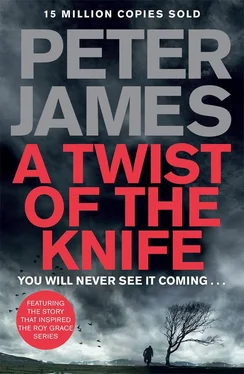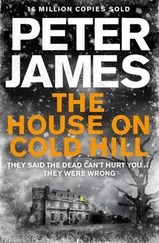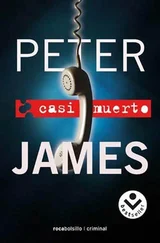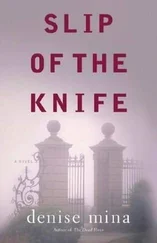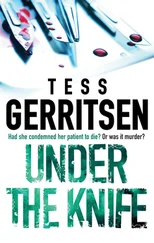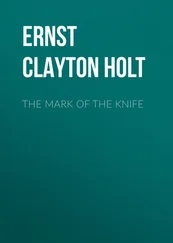He peered nervously at the row of terraced houses the other side of the street. It was impossible to tell the quality of the residences inside. Some were elegant flats, some were bedsits, like his own.
He found the window straight away, out of habit. Damn. She was not there. He muttered to himself, as if he had been deprived of something that was rightfully his. And then he saw a flicker of movement — or had he imagined it?
Suddenly she came into view, clutching a drink and a paperback. She was completely naked, as usual; only now it was summer and her body was brown, with slim white bands around her breasts and bum. She kicked off her high-heeled shoes, placed her buttocks on the pink chaise longue, leaned back and swung her long legs onto it. She took a sip of her drink, put down the glass and opened her book.
What was the drink, he wondered? What was the book? Why did she keep a bikini on whilst sunbathing when she clearly liked to be nude? So many questions, he thought. So much he would like to know about her. All last autumn, he had seen her tan fading; now the bands were back, appearing whiter every week. There were surely things she would like to know, too? Not, perhaps, the fact that he watched her every night, no. But would she be pleased that she was the heroine of the book he was currently writing? Would she care for that type of book — the romantic novel? Perhaps not, he thought wistfully. It seemed to him that the people who cared for his romances were a dying breed. Old hat, people called them. Old hat — and he was only thirty-two!
A wave of panic squeezed his stomach like a tourniquet. What had he forgotten? Something important? Damn. He stared at the long brown legs longingly. He remembered, and tore his eyes away reluctantly, like sticking plaster from an old wound. He looked up the telephone number and dialled with short, timid stabs of his index finger, as though he were testing the warmth of a soup.
He was surprised to hear a squawk, instead of the ringing tone, followed by a woman’s voice, then a series of clicks.
‘Hallo,’ he ventured timidly.
‘Hallo,’ came the reply.
Silence.
‘I believe we have a crossed line,’ he said.
‘Yes,’ came the reply. ‘I believe we do.’
His eyes were transfixed across the road once more. She was on the phone too!
‘I was just dialling,’ she said, there was humour in her voice. It was a nice voice, someone who had learned to cope with the world and was still young enough to be full of hope. Across the road she had stopped speaking and was listening. She looked puzzled. Was it really possible this was her?
‘I was here first,’ he said, and then winced. He was doing it again. His wife had always told him he could never argue without attacking; now he was attacking the nice voice.
‘OK,’ she said, her tone unaltered, the lips of the girl across the road moving once more. ‘I’ll hang up.’
The lips stopped moving.
‘No — no, don’t do that. I’ll hang up. It wasn’t an important call. I was trying to get the weather you see.’
Her lips moved again. ‘You must be an optimist, to spend money on a weather report.’ The lips stopped again.
The coincidence was too great now. It had to be her! Then a cloud moved in front of the sun. Optimist, he thought. No. She did not know him at all. Optimism was something that eluded him like a butterfly in a summer field.
In a moment, she would be gone. He could not bear that, not now, not having got so close.
‘Meet me!’ he blurted out. ‘For a drink? You know — a coffee, perhaps. Or lunch?’ He looked across at her. She was smiling; her eyes lit up! ‘Are you free for lunch one day?’ She was thumbing through something, turning pages. A diary? Where had his courage come from, he wondered? She was searching, searching with her long naked arm. Say yes, please say yes.
‘How about Thursday?’
He gobbled her words down greedily, like a starving man eating a stew.
‘Yes, Thursday is good for me. It’s the only day I have clear this week,’ he lied, and immediately was annoyed with himself for lying. But he knew she would not have been impressed with the truth: that all his days were free, stretching out ahead like the blank white sheets in the box of A4 paper he had to fill with words — of love, bravery, heroism, desire and, ultimately, success.
‘You do live in London?’
‘Yes,’ he said, conscious that his voice was blurting; it was as though his mouth had become a brass horn and his voice a rubber bulb; he kept squeezing it at the wrong pressure.
‘Where do you work?’ he said. ‘I mean, which part of London? I’m not trying to be nosey, it’s just important to choose somewhere — er — convenient.’
The good humour stayed with her voice, without effort. ‘I don’t mind coming over to where you work.’
‘No,’ he said, and realized that he had nearly shouted.
‘What I mean is that I couldn’t inconvenience you. I work in Oxford Circus.’
‘That’s perfect. I have a meeting in Bond Street on Thursday morning,’ he said, selecting Bond Street because he felt it sounded smart. His mind raced. Where could he suggest? Bond Street? What names. Claridge’s? Classy, but he had never been in; he wouldn’t know where the bar was, where the restaurant was. He could do a recce; it was only Monday today. But no, Claridge’s seemed too formal. Somewhere romantic — Italian? Yes, the hero and heroine of Sweetness and Light , his new book, fell in love with each other in an Italian restaurant, while a mandolin player serenaded them.
‘Do you like Italian food?’ he blurted again, wondering what the hell had happened to his voice.
‘Oh yes, I adore it,’ she replied.
‘Me too. Have you a favourite restaurant? I’ll leave the choice up to you.’ He began to flounder. ‘I...’ he said, ‘I...’ He searched for words, like a man rummaging through a key ring.
‘It’s been a while since I was around that area.’
‘What about Fifty-Five?’ she said.
‘Fifty-Five?’ He paused. ‘Fifty-five which street?’ he said, feeling slightly foolish.
She laughed. ‘No, that’s the name of the restaurant. On the corner of Bond Street and Maddox Street.’ He found a laugh, too, from somewhere within him, easier than he had thought he would. ‘Oh yes, I know it,’ he said. ‘Very nice. Yes, I’ll book — what time?’
‘Will your meeting be over by one?’ He delayed replying, trusting this implied that he was pondering the agenda. ‘Yes,’ he said finally. ‘It should be. And if not,’ he added, with bravado, ‘it will just have to go on without me.’
‘Right,’ she said. ‘I’ll see you there at one. How will we recognize each other?’
She was practical, he thought.
‘Just ask for my table.’ He paused, like a dry bather at the edge of a pool.
‘I don’t know your name.’
‘Henry,’ he said.
‘Henry what?’ she said.
He stuck a toe in the water and watched the ripple. ‘Henry Henry — surname and Christian name.’ Don’t laugh, he said to himself, please don’t laugh. He remembered his wife laughing the first time they met. The name had annoyed and embarrassed her throughout the eight years they were married.
She did not laugh. ‘I’ll see you at one o’clock on Thursday, then.’ She paused and added sweetly, ‘Henry.’
‘What — what’s your name?’ he blurted.
‘Poppy,’ she said, and left it at that, without revealing her surname.
His heart sank, very slightly, at this tiny element of mistrust. He hung up the phone and watched across the road. She was replacing the phone and smiling — yes, smiling! She lay back. ‘Poppy,’ he said to himself. Yes, he liked that name. Suddenly he realized he was humming ‘Waltzing Matilda’; it was something he always did on the rare occasions when he was happy.
Читать дальше
